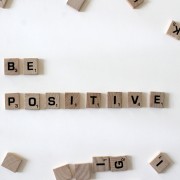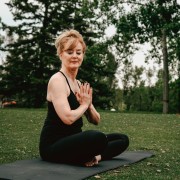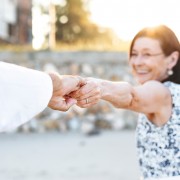Benefits of Positive Thinking
There are a lot of negative thoughts that can accompany someone who is dealing with dementia or someone who is caring for someone with dementia. This ailment can cause people to be stressed, bitter, angry or sad. These are all negative emotions that can influence the way we see a situation. One way to combat these kinds of feelings is to take on a positive attitude. A positive attitude can bring about positive change or results. When we change our mindset, we can change our lives. Below are listed some of the ways that a positive attitude or positive thinking can benefit an individual.
Benefits of Positive Thinking and Positive Attitudes
- Increased life span
- Lower rates of depression
- Lower levels of distress
- Greater resistance to the common cold
- Better psychological and physical well-being
- Better cardiovascular health and reduced risk of death from cardiovascular disease
- Better coping skills during hardships and times of stress
- Solution-focused versus problem-focused
- Increased sense of hope
- Creates a better environment for those around you
Ways to Be More Positive
Having a positive mindset is not always easy. Many times it is a choice we make daily. While it’s not always the simplest thing to do, there are things you can do to practice positivity. Here are listed some of those practices.
- Make a gratitude list
- Read motivational books
- Watch motivational speeches
- Meditate
- Engage in physical activities
- Identify areas of negativity
- Talk with a friend
- Be open to humor
- Spend time with positive people
These are all ways to increase overall positivity that can help you change the way you see your situation. Usually, these practices can open our minds and our hearts to find the best in any situation.
Positive vs Negative Thinking and Speaking
Below is a chart comparing positive and negative thoughts/words. If you find yourself mostly in the negative column, try using the phrases/thoughts from the positive column.
| Negative | Positive |
| I’ve never done it before | It’s an opportunity to learn something |
| It’s too complicated | Necessity is the mother of invention |
| I’m too lazy to get this done. | I wasn’t able to fit it into my schedule, but I can re-examine some priorities. |
| There’s no way it will work. | I can try to make it work. |
| It’s too radical of a change | Let’s take a chance. |
| No one bothers to communicate with me. | I’ll see if I can open the channels of communication. |
| I’m not going to get any better at this. | I’ll give it another try. |
While some situations are not ideal, there is always a silver lining. We can always do our best to approach new and challenging situations in a positive way. Having a positive outlook on seemingly impossible situations can help us deal with all that we are facing. Here at Orchard at Brookhaven, we want to support your positivity. We seek to find the best in all of our residents and all that they bring to our community. If you are interested in becoming a part of this community, please contact us.










